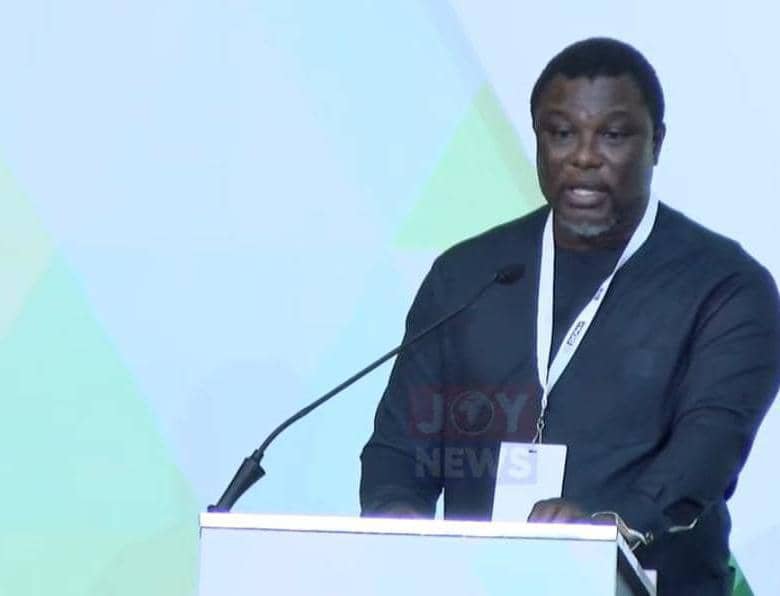
Mr. Davis Narh Korboe, President of the Federation of Associations of Ghanaian Exporters (FAGE)
President of the Federation of Associations of Ghanaian Exporters (FAGE), Mr. Davis Narh Korboe, has called for a bold, coordinated national movement to transform Ghana’s horticultural potential into a driving force for economic growth and global competitiveness.
He made the call during the opening of the second edition of the Ghana Horticulture Expo 2025 at the Accra International Conference Centre (AICC). The three-day event was held under the theme “Innovate, Transform, Sustain: Driving Growth in Ghana’s Horticultural Sector”.
Mr. Korboe challenged stakeholders to leave the expo not merely with brochures and business cards, but with a shared resolve to birth a movement—“a movement to grow not just crops, but capacity; to harvest not just produce, but prosperity.”
He described the expo as Ghana’s “grand orchestra of ideas and enterprise,” adding that horticulture must no longer be seen as a niche agricultural practice, but rather as a central pillar of Ghana’s economic transformation strategy. He emphasized that the theme of the expo resonates not only with Ghana’s development priorities but also aligns with the African Continental Free Trade Area (AfCFTA) agenda and the global Sustainable Development Goals (SDGs).
24-hour agribusiness economy
Mr. Korboe advocated a 24-hour horticulture economy, saying it was a transformative policy direction that is crucial for Ghana’s export-led recovery.
“Imagine a Ghana where irrigation pumps hum through the night, agro-processing plants run in shifts, refrigerated trucks move at dawn, and cargo desks operate around the clock. This is not a fantasy; it is a vision within reach—if we are bold enough to align policy, energy, labor, and technology,” he stated.
According to him, such a transition will boost productivity, reduce congestion in supply chains, generate high-quality jobs, and increase Ghana’s competitiveness on the global stage. FAGE, he assured, stood ready to work with government, financial institutions, logistics providers, and tech innovators to pilot and scale this transformation.
Yields
While Ghana boasts rich agro-ecological resources, fertile soils, diverse microclimates, and a labour force where over 60% is engaged in agriculture, Mr. Korboe lamented that yields for major horticultural crops like mangoes, pineapples, and vegetables remained below global benchmark.
Moreover, he noted that post-harvest losses accounted for over 30% of produce due to poor infrastructure and fragmented value chains.
As the global horticultural market heads toward a projected USD 320 billion by 2030, Ghana, he said, must position itself as a top-tier supplier of traceable, ethically-sourced tropical products.
Appreciation
Mr. Korboe expressed gratitude to President John Dramani Mahama for his continued support, including recent interventions in the horticultural value chains through the Chief of Staff’s office and the Director of the Presidential Initiative in Agriculture.
He commended Mr. Julius Debrah, Chief of Staff, for “working behind the scenes” to promote exports, and also thanked Exim Bank CEO Mr. Sylvester Mensah and GEPA CEO Dr. Afua Asabea Asare for redefining export finance and offering hope to Ghanaian exporters.






